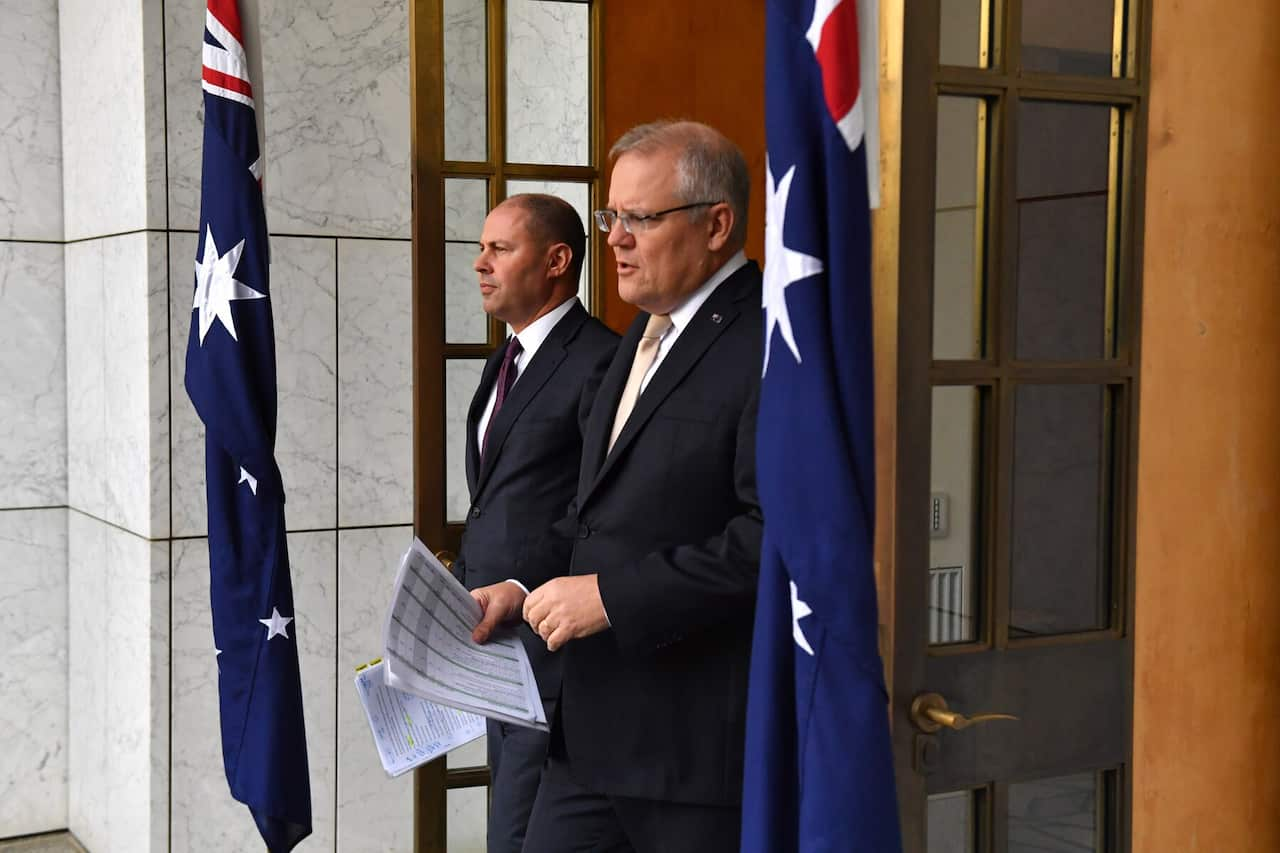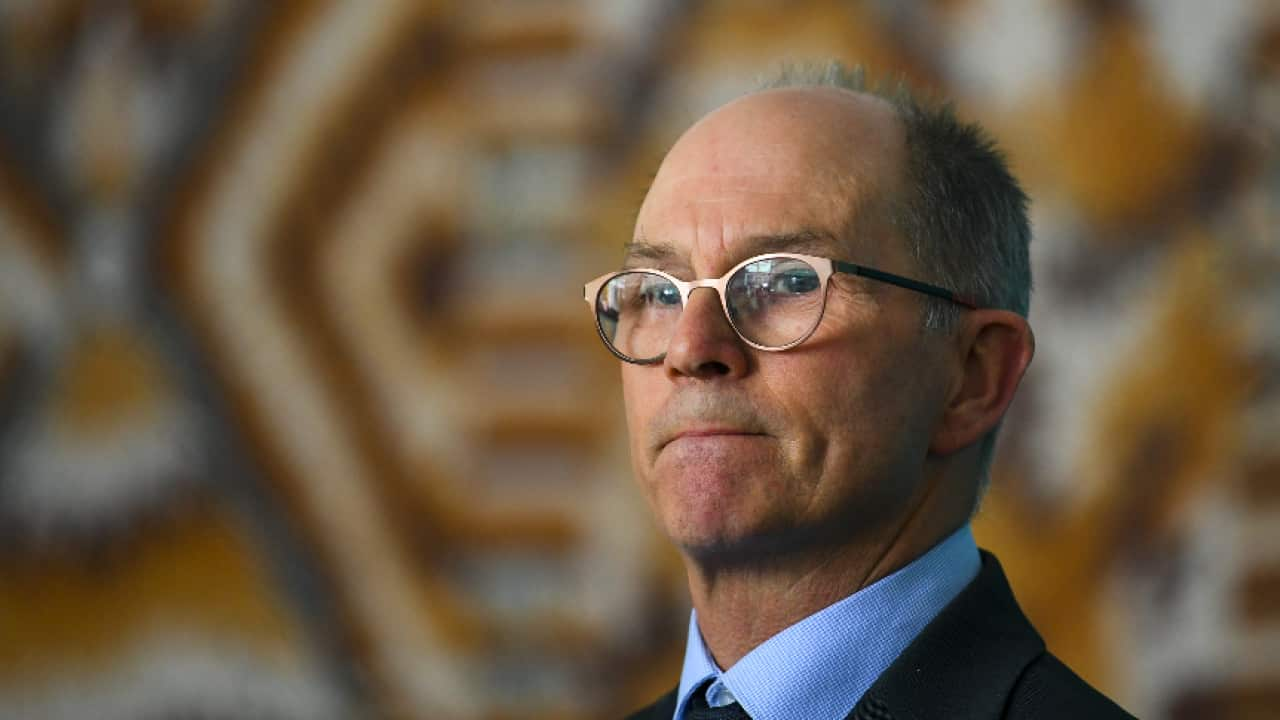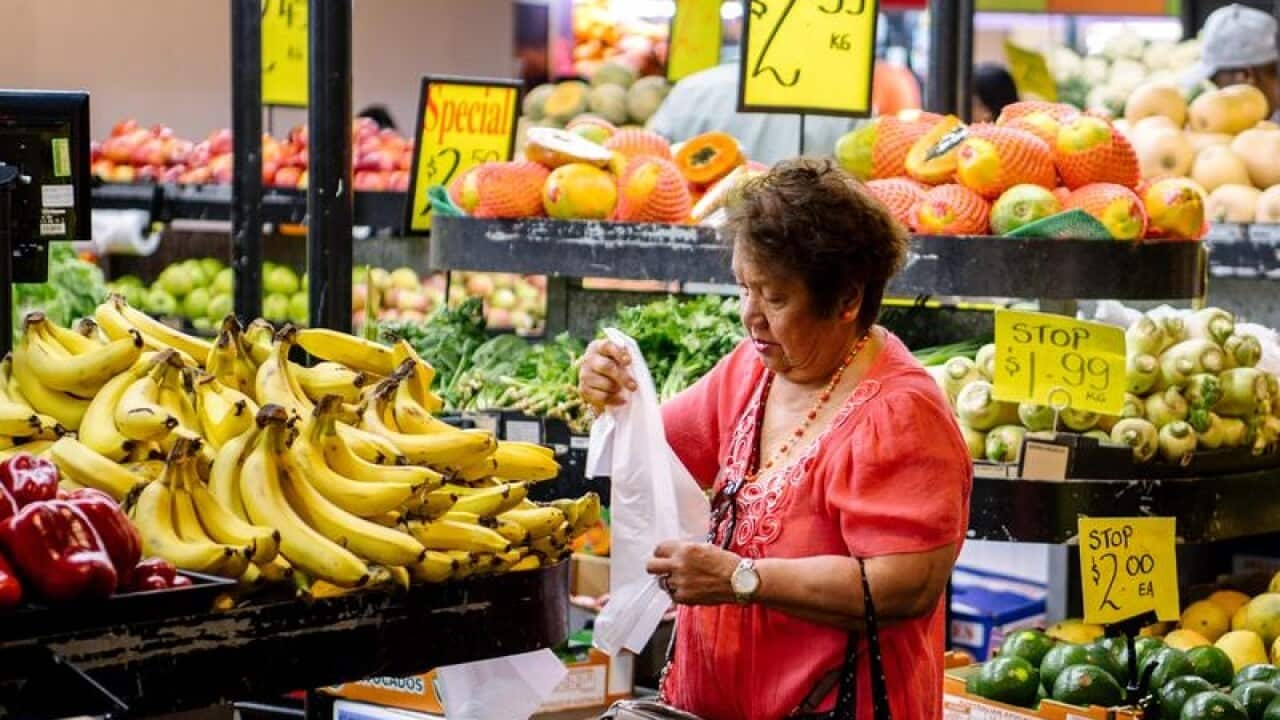The Federal Government is looking at ramping up its economic stimulus in response to the coronavirus outbreak as states declare public health emergencies.
Prime Minister Scott Morrison will base himself in Canberra to direct the government's response.
He will have rolling meetings with cabinet ministers on Monday, and will consider further economic measures with Treasurer Josh Frydenberg and Finance Minister Mathias Cormann.
The government last week announced $17.6 billion in support for small and medium businesses and cash payments to people on welfare, but recognises there will be a deeper-than-expected economic impact.
Non-essential gatherings of more than 500 people have been banned, all people arriving in Australia from overseas must quarantine themselves for 14 days, and cruise ships have been barred from Australian ports for at least 30 days.
Deputy chief medical officer Paul Kelly said people arriving in Australia would be allowed to transit to their home state if they were well upon arrival, but would not be allowed to travel on if they were sick when they get off the plane.
There are now more than 300 cases of coronavirus in Australia.
Most of those people are in NSW and many have already recovered from their illnesses.
Professor Kelly said 80 per cent of cases would be mild and not require hospital treatment.
However, five people have died, all aged older than 77.
The nation's top medical officers are meeting on Monday afternoon to consider further restrictions on indoor gatherings.
They will advise the national cabinet - consisting of the prime minister, premiers and chief ministers - when it meets on Tuesday night.
"So whether there should be some specific information in relation to gatherings in enclosed spaces, as compared with ones that are outside - a football stadium versus a pub for example," Prof Kelly told reporters in Canberra.
Medical officers are also looking at whether the Australian manufacture of protective masks can be increased.
Mr Morrison and Health Minister Greg Hunt also met with the head of the Australian Medical Association, Tony Bartone, on Monday.

Queensland, Victoria, the ACT and South Australia have declared a state of emergency while Tasmania will force all people coming to the island state to fill out passenger arrival cards.
Mr Morrison said the declarations were about giving state and territory governments the powers to protect public health and slow the spread of the virus.
"A state of emergency is not a state of panic," he told Nine Network.
The declaration allows a government to impose policies it would normally not be allowed to do, such as detain people or restrict movements.
Meanwhile, the federal government is resisting pressure to close schools nationwide, with Mr Morrison pointing to risks associated with a shutdown.
He's concerned nurses and medical staff could be forced to stay home to look after children or vulnerable grandparents end up minding grandchildren.
Education Minister Dan Tehan said medical advice warned the spread could worsen if unsupervised children mingled in the community.
Prof Kelly said it remained the situation that most people in Australia who had the disease had caught it overseas and testing was still being prioritised to those cases.
"We're on that tipping point to an extent where there are now some cases we're finding that don't have that definite (overseas) link," he said.
Asked whether people should start working from home, Prof Kelly said Australians needed to start thinking about what could be done in terms of personal isolation.
"Not to become isolated - we still need to be there for each other - but ... this is something for all businesses to think about, what we can do to decrease infection in our own workplaces," he said.
Globally, more than 160,000 people have come down with the disease, with more cases now recorded outside China than in the virus' country of origin.




